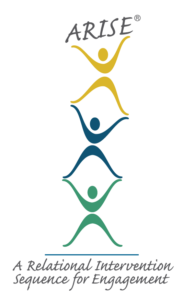The effects of addiction in the workplace cost American businesses over $100 billion in lost productivity annually due to premature death and illness. When the Addicted Individual (AI) is the CEO, a physician, attorney or other high-level executive, the degree of risk to your business goes far beyond the financial cost, possible litigation, and a stained reputation within your industry. Our ARISE® Executive Intervention process helps your business identify those early risks and initiate Intervention before major loss in the workplace occurs.
The ARISE® Intervention is designed to meet the challenges of addiction in the workplace, is flexible, modular and can be tailored to fit the culture of your particular business and timetable. If your addicted executive has already completed treatment and you are still worried about his or her effectiveness and sobriety, ARISE® can be initiated at that time. ARISE® gets over 83% of addicted individuals into treatment, with 61% sober by the end of the first year.
An Executive Intervention calls for a highly qualified interventionist – one who is able not only to influence the addicted individual to get help with their addiction through treatment, but one who will also work with you and their colleagues to support their recovery as they return to the workplace. The ARISE® Continuum of Care will continue for a full six months after entering treatment. Our specialized Certified ARISE® Interventionists are highly professional and exercise absolute confidentiality.
Different from other forms of intervention, with our Executive ARISE® Intervention, the primary participants are the senior members of the workplace, rather than the family. Once the executive has entered treatment, the Certified ARISE® Interventionist, involves the family in regular weekly meetings with the executive and treatment team. The involvement of the senior members of your company during this phase of the ARISE® process is done only at your discretion and in consultation with the Senior Certified ARISE® Interventionist.
Towards the end of treatment, the planning process for return to the workplace or other alternatives will involve consultation between you and the Certified ARISE® Interventionist. If the executive does return to your company, the ARISE® Continuum of Care will involve work on re-entry, relationship repair as needed, and monitoring and accountability measures around the addictive behaviors. During this phase of ARISE®, the family work will continue separately from the workplace endeavors. However, measures of monitoring and accountability will also occur on the home front to support the efforts in the workplace.
While the ARISE® Invitational Intervention itself can be done gently and over a period of 1-3 weeks, in the case of Executive ARISE® Interventions, we prefer to complete this phase in one sitting to ensure that there is no further disruption or destruction in your workplace.



